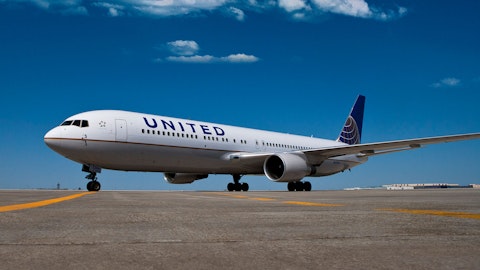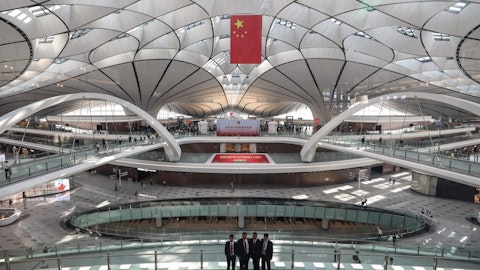Pedro Heilbron: Yes, Duane, I’ll start – I’ll actually start with the second part, which is the reasoning. First of all, since April we’ve had the ability to call the convert and I think that our calculus is that at this time the economics of the deal worked out for us versus letting it mature. And then thirdly, I would say the Board when it made its decision, they simply – I think, they wanted to get the pandemic behind us and I think that also influence the decision even though, as I mentioned before, from an economic perspective and financial perspective, it made sense for us to execute the call at this time even with a make-whole affected, et cetera. I would say that the – in terms of the accounting-wise – first of all, we’re electing to settle it via the net share method, whereby we will pay that principal in cash, $350 million in cash and the remainder in shares, that – ultimately the valuation of that will depend on a 40 day – 40 trading day observation period that ends in the second week in September.
So that will ultimately determine what – ultimately what the number of issued shares that we would have coming out at that time, the day of the settlement. So that’s still pending to be determined. And then finally, in terms of how it affects the interest expense, the interest expense will go down by two factors. Number one, of course, the coupon goes away, the 4.5% coupon on the $350 million, but in addition to that, there is a portion, I’ll say, maybe it’s about a $7 million per quarter figure that was a portion of our interest expense that was non-cash, that will basically go away during – after the settlement. So that’s basically the way that it will work out.
Duane Pfennigwerth: That’s really helpful. Is there any relationship between this step and what your dividend policy might look like into next year? Does this make it, I guess, more likely or less likely that you just continue your dividend policy into 2024 based on a look back to 2023 earnings?
Pedro Heilbron: No, I think our policy – our dividend policy as I just to restate it, it distributed 40% of the prior year’s adjusted net income and I think that’s – that will continue.
Jose Montero: Yes, so the conversion make no difference.
Duane Pfennigwerth: Okay, that’s very clear. Thank you.
Pedro Heilbron: Thank you, Duane.
Operator: Our next question comes from Guilherme Mendes from JPMorgan.
Guilherme Mendes: Good morning, Pedro, Jose. Thanks for taking my question. I have two, one, it’s on the capacity and demand. So if you could split a little bit between leisure, VFR and corporate, how you’re seeing demand? And I recall, on the last conference call, you mentioned about the corporate is still not fully picking up. So how have you seen that during the second quarter and what are the expectations for the second part of the year? And the second question is.. sorry, Pedro, go ahead, and then I will ask…
Pedro Heilbron: Go ahead, go ahead. Second question.
Guilherme Mendes: Thanks. That question is regarding unit management. So you discussed about the unit revenue, just wanted to better understand how do you think about your ability to increase prices according to fuel prices, so how fast could you do that, I mean, according to competition and market trends? Thank you.



